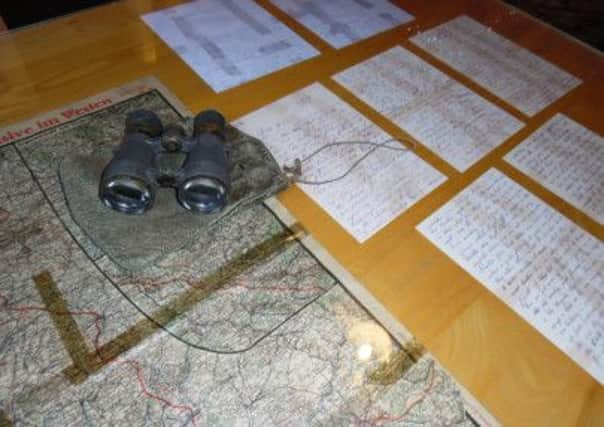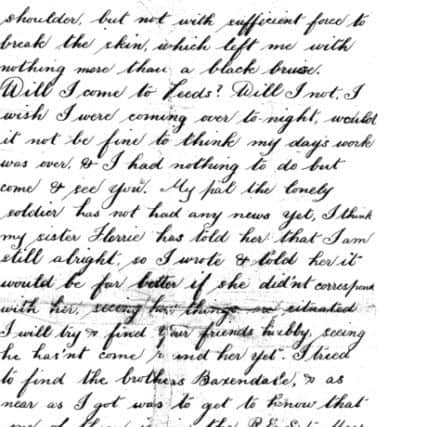Soldier’s love letters from WWI trenches on display in Harrogate


“It’s not like reading about the war in a history book. I think it’s more raw than that when it’s unedited.”
At How Stean Gorge, under a glass covered table, sits a collection of letters from Stanley Crossley to his soon-to-be-wife from the trenches of the First World War.
Advertisement
Hide AdAdvertisement
Hide AdThe first set of letters, sent to his sweetheart Elizabeth waiting at home, were written in pen with plenty of paper and recount the experiences of the soldier serving in the Durham Light Infantry.


These letters, along with a further set hastily written in pencil and explaining in more detail the horrific circumstances the soldiers found themselves in, now sit on display at How Stean Gorge 100 years after the outbreak of The Great War.
“I take no notice of dreams as it’s only a matter of a restless brain,” writes Stanley as he attempts to console a worried Elizabeth waiting at home.
“Fancy letting thoughts like that trouble you. I once dreamt I was badly wounded in a far off land with no one to look after me and there I laid for over four days to wake up and find it was only a dream.”
Advertisement
Hide AdAdvertisement
Hide AdPoignant and precious insights into the minds of soldiers in the trenches are crucial to understanding the reality of the war, according to Stanley’s grandson who proudly displays the letters in his shop.
Stan Beer, named after his grandfather, is a keen lover of history but explains a feeling of ‘detachment’ when recounting events through books, unlike the personal and private moments captured in these correspondences.
He said: “People who read these letters in the shop, it hits them directly. Everybody was a nobody back then but they were all so important in the war, everybody’s story mattered even though they didn’t all get medals.
“They didn’t all talk about their experiences when they got back. It’s hard to talk about your experiences of the war. When we were young we were just playing war games but this was their real life and it makes it real history.
Advertisement
Hide AdAdvertisement
Hide AdWhen you read history you can become detached but this is real history, I have 25 per cent of his genes. It’s nice to show off your history and show where you have come from and how this has made me who I am today.”
Although Stanley survived the war and returned home to marry Elizabeth, his documented experiences of the trenches almost didn’t survive to this day as they were ripped up and thrown away after his death.
Stan said: “When my grandad died my grandmother tore the letters up and then put them in the bin. I think she did it because they were quite private memories and she did not want to be reminded of them. I myself find it very difficult reading them.”
If not for his daughter Doris’s commitment to preserve his memories, to the point of sellotaping the letters back together, then his recollections from the trenches may not have been displayed so prominently as a reminder of the true nightmares of war.